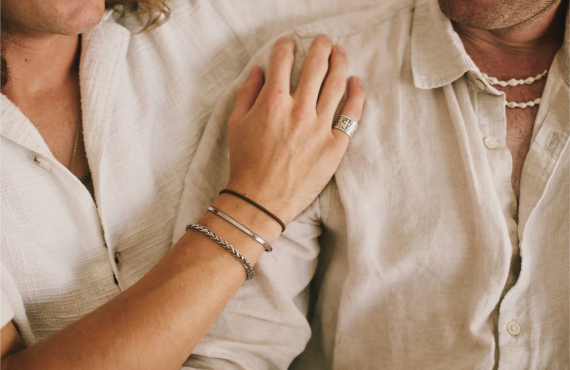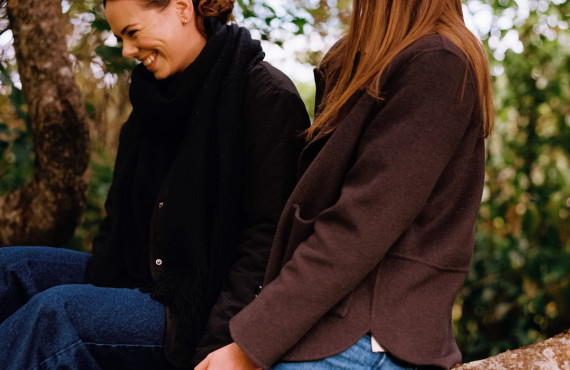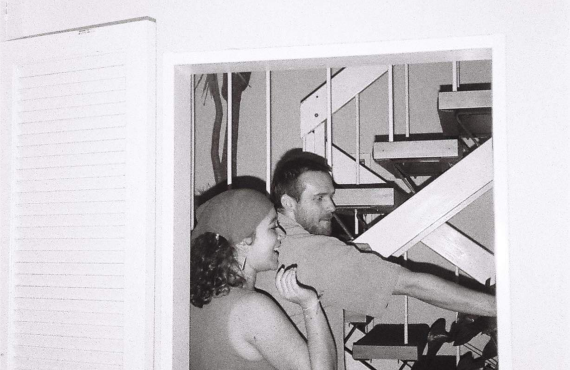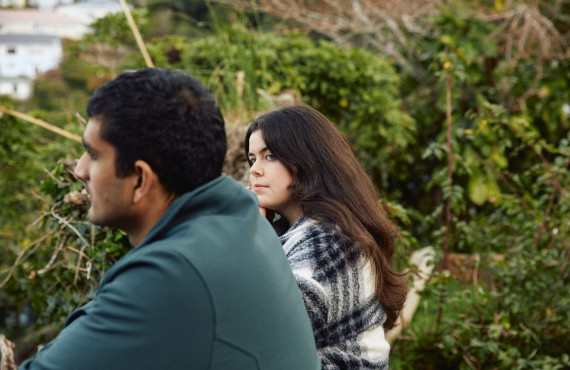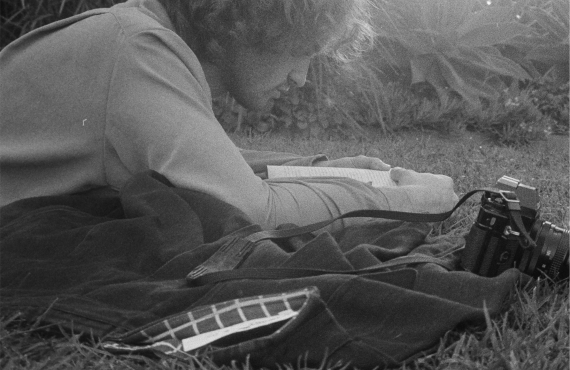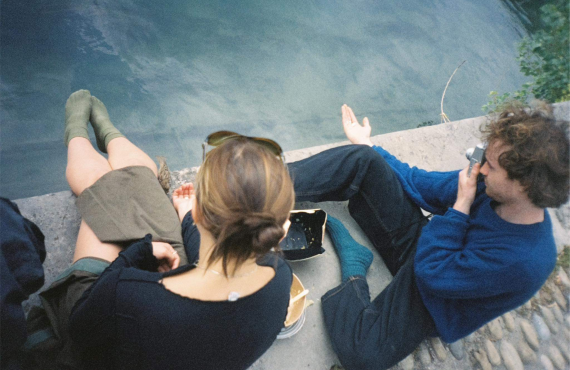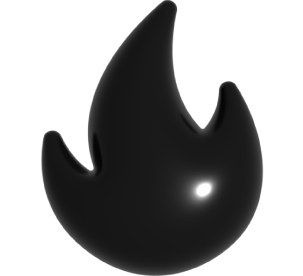Love Creep - How love can turn into a pattern of control
By Eleanor Butterworth
Have you ever heard about the 'frog in hot water'? The story goes, if you put a frog into boiling water it will jump straight out. But if you put a frog into cold water and turn up the heat until it is boiling, the frog won't notice until it is really in trouble.
For the sake of frogs everywhere, I hope this is not true (and that it’s never been tested!). But whether froggy fact or fiction, this tale also gets used to describe the very true story of how what we think is love can creep into control in ways we don't notice until – like the frog – we are really in trouble.
There are some relationships where abusive and dangerous control is overt, right from the beginning. However, it is more common for control to grow, undetected, over time. One of the most confusing things about control is that it’s often disguised as a version of the love we felt early in a relationship.
Control is stealthy, it sneaks up on us, but the signs are there if you know where to look.
Below, we reveal the stages of a controlling relationship; how something that starts out seeming ‘normal’ and loving transforms to controlling. We’ll help you know what to look out for and what you can to do to escape that pot before the water reaches boiling point.
Stage 1: B.C. Before Control
There are few things more life affirming than the sense of connection, joy and lust at the beginning of a relationship. Hands up if you have found yourself wanting to spend all your time with a new partner, thinking about them constantly, physically missing them when they are not around? We are hardwired for connection, and that flood of happy hormones makes all of these feelings and behaviours really common in a new relationships. This time is also known as the ‘honeymoon phase’.
In a healthy relationship, what happens next is those feelings (and hormones!) start to settle and our relationship starts to slot into your regular life. In other words, you start to create balance between your relationship and all the other things that are important to you both. And…. this is also the point where you may realise you aren't as compatible as you thought and things fizzle out as the hormones fade.
However, in unhealthy relationships, this is also the time we start to see patterns of behaviour that keep that intensity going in ways that are less about growing love and more about establishing control.
Get out of the pot by:
- Staying connected to your other relationships and interests, even if they don't feel as exciting as this new connection. While you may feel a bit obsessed with each other early on, you still need all your other connections.
Stage 2: Control dressed up as love.
As you move out of the honeymoon phase, control is most likely to show up pretending to be love. For example:
You realise you've missed one too many hangouts with your friends, so you let your partner know you won't see them on Friday because you've got plans. But they try and convince you not to go or to bring them along:
“I’m going to miss you so much, can’t you do it another night?”
“I had something special planned for us.”
“It's our 4-week anniversary though!”
“I could come too?”
Get out of the pot by:
- Paying attention to the twinge in your gut that reminds you that you wanted to see your friends on your own, that you’re ok to have a night apart even if they aren’t. This stage can be confusing: we really like this person, and we do want to hang out with them. But if you want a relationship to last, it needs to have room for all the other parts of your life.
- Communicating: Start to be clear about your boundaries. Boundaries are just another word for saying what you need to be whole and happy in your life. You can do this with love:
“I’m going to miss you too, but my friendships matter to me.”
“I can't wait for you to meet my friends, but this Friday it’s just the crew.”
“4-week anniversaries aren’t a thing…” (ok, maybe not that, but you get the idea)
- Knowing that this is not love. Start to recognise these behaviours as imposter love. It looks like love, it sounds like love, but it doesn’t feel like love.
Stage 3: Control dressed up as concern.
As control starts to seep into a relationship, we might see it change from big expressions of ‘love’ to expressions of ‘concern’:
“Your friends drink too much – you shouldn’t hang out with them.”
“If you're serious about your study, you shouldn't be wasting your time with sport.”
Get out of the pot by:
- Trusting that you are the expert on your life. Real concern looks like asking questions about your wellbeing, like “how are you finding juggling training and study? Is there anything I can do to help?”. Control, on the other hand, looks like telling you what you are doing wrong and how to fix it. It implies we aren’t competent to make our own decisions. This is a red flag!
- Start thinking about if this relationship is right for you. If your partner doesn’t respect areas of your life that don’t include them, it’s time to start thinking about whether you want a future with them. If you can’t freely enjoy your other relationships and interests without judgement from your partner, you’re unlikely to be happy.
- Continue to communicate boundaries! If you still have hope for this relationship, it’s time to really spell out what is ok and what’s not ok for you.
Stage 4: Physical, sexual or psychological control.
At this stage we are into patterns of seriously abusive behaviour that limit the choices and control you have over your own life and body. You might notice it’s starting to feel safer to just do what they want and let them make all the decisions. It might start to feel like you’re walking on eggshells. All controlling behaviour is emotionally abusive, but in this stage we see that turned on high.
This tactic is all about you, and not in a good way. It’s less about convincing you to agree and more about:
- Guilt-tripping or scaring you into doing things, e.g., “I'm so sad you won't do what I want, that I’ll…. [insert threats or actual self-harm here].”
- Picking fights with your friends and family, or “losing it” and hurting you or your property when you don’t do what they ask.
- Accusing you of cheating, making you feel like you “owe” them certain kinds of sex, using things like your mental health, history, or family issues as reasons why you don’t know what’s best for yourself and can't be trusted to make your own decisions.
Get out of the pot by:
- Remembering you are not 'crazy'. You might be feeling like you can't make decisions, you’re struggling to focus, or you feel stuck. Being caught in a controlling relationship takes a massive toll on our mental health, and these are all normal reactions to an abnormal situation.
- Talking to your friends and family. Isolation makes this stage much more dangerous. Even if you aren't ready to leave, it’s important to let other people know what’s going on for you, so they can be on hand for reality checks and support to will help you come back to yourself and find a way through.
- Get help from the professionals: Check out the support listed on this page. These places can help you make sense of what is going on whether you are planning on staying or leaving. They will help you make plan for your safety, which is important even if you’ve decided to leave. Leaving a controlling relationship is the most dangerous time and having a plan to keep yourself safe is critical.
Healing after being in the pot
Just like that poor old frog, it’ll take time and support to heal from your time in the pot. Just like a physical injury, emotional abuse can leave aches and pain. These resources and services can be a good place to start that healing journey.
Visit lovecreep.nz to find out more.
Tagged
You may also like
-
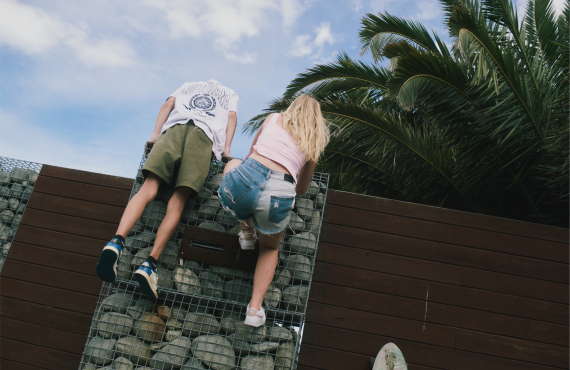 Read
ReadDo you like your partner as a person, or do you like the lifestyle they offer you?
Advice, Relationships

